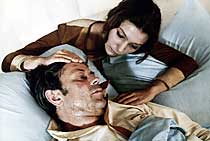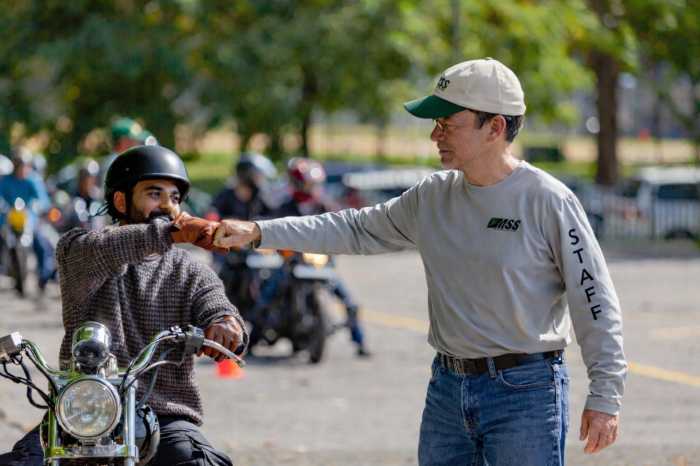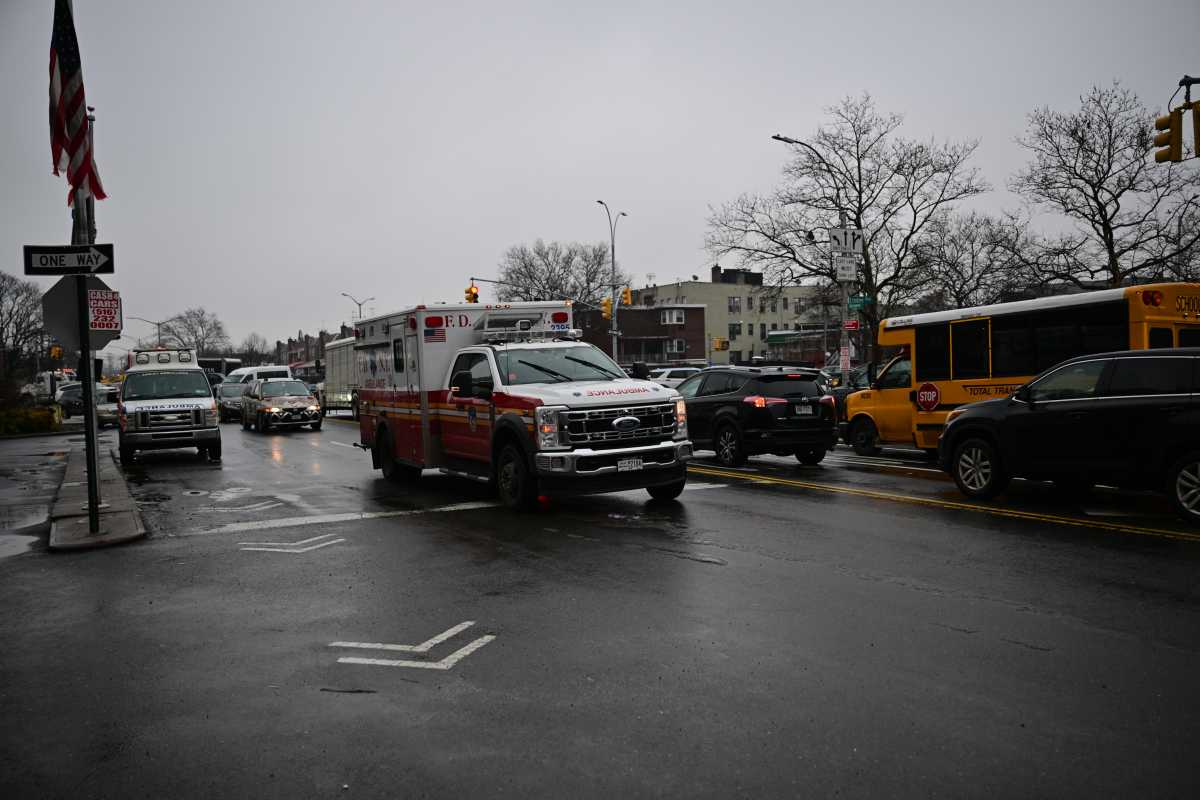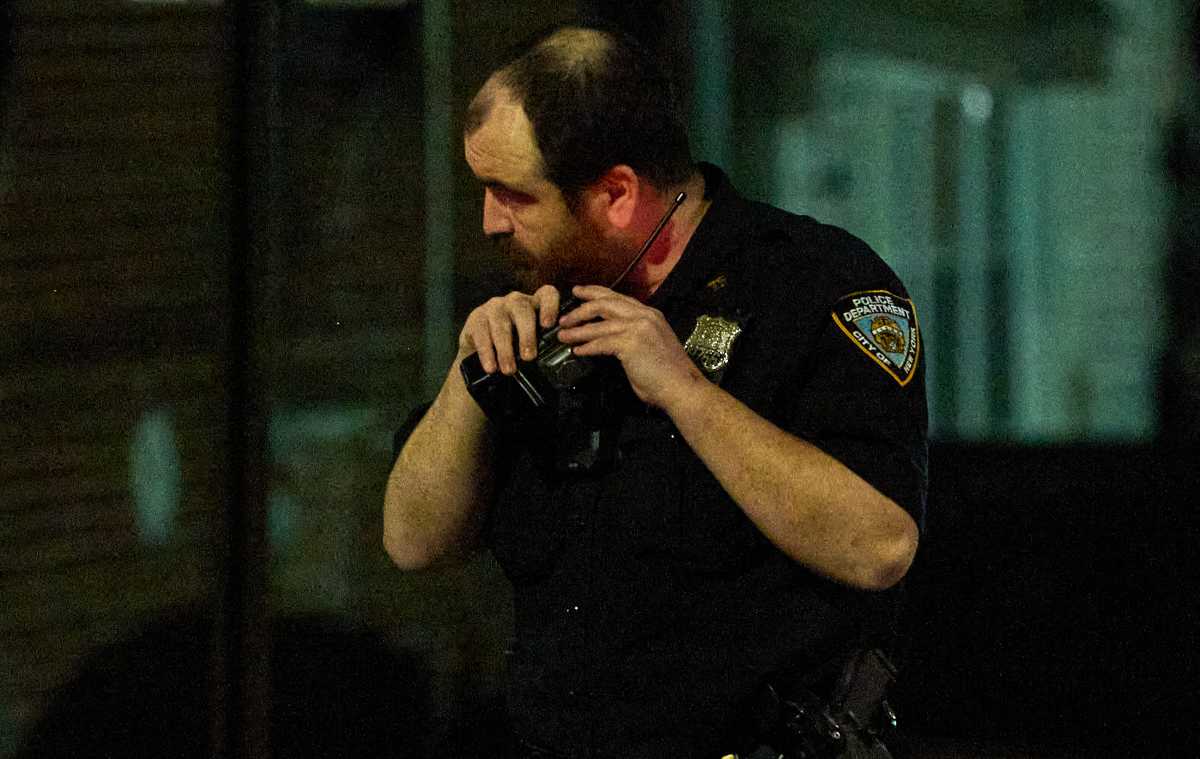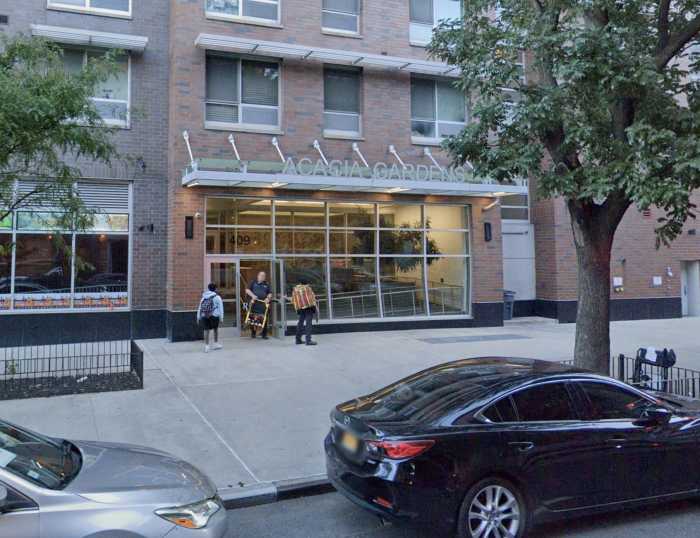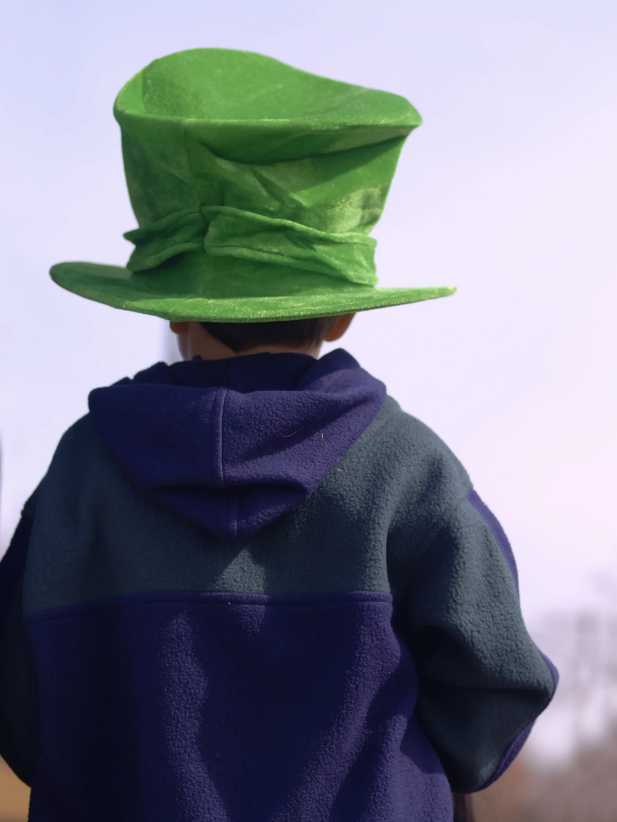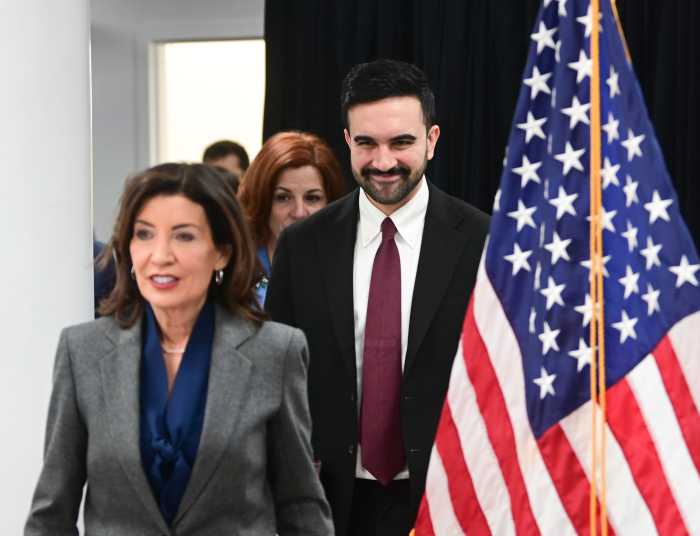Russian director Andrei Tarkovsky’s dense
and willfully uncompromising films are the subject of a long
overdue retrospective at the BAMcinematek.
The retro, "My Name Is Andrei Tarkovsky" (Dec. 6-18
at the BAM Rose Cinemas), is near-complete, showing six of his
seven mature films: only his penultimate feature "Nostalghia"
(1983) has, unfortunately,
not been included.
Although Tarkovsky (1932-1986) was allowed a surprising degree
of independence by the Soviet authorities – notwithstanding his
films being misinterpreted and branded inscrutable, and including
bizarre censoring of his epic "Andrei Rubelev" – he
eventually left Russia for the West, where he made his final
two films.
After finishing "Nostalghia" in Italy, he went to Sweden
to make what would be his last work, "The Sacrifice,"
a stunning summing-up of all his earlier themes into a heady
psychological brew.
No less a cinematic eminence than Ingmar Bergman marveled that
Tarkovsky "invented a new language."
Each of his memorable films develops those truly Tarkovskian
(to coin a phrase) themes. After making an interesting 45-minute
failure that planted the seeds of his later work ("The Steamroller
and the Violin," not in the series), Tarkovsky moved on
to his debut feature, "Ivan’s Childhood" (aka "My
Name Is Ivan," showing Dec. 6-7).
An orphaned teenager, Ivan has grown up knowing only warfare,
which has transformed him into a walking zombie as he assists
the Russian military spying on the Nazis. This bleakly knowing
dissection of the simultaneous loss of innocence and humanity
will haunt Tarkovsky’s subsequent work.
His second film, "Andrei Rubelev" is a gorgeous-looking
psychobiography of the 15th-century icon painter and monk. The
film’s banning in its native country caused it to be shelved
for several years, only to be originally shown around the world
in mutilated form. The new print, being shown Dec. 8, is of the
complete, 3-hour, 5-minute version, which is a masterpiece.
When Tarkovsky’s gargantuan space epic "Solaris" (Dec.
13-14) appeared in 1972, it initially seemed a response to Kubrick’s
groundbreaking "2001," but the director – who disliked
Kubrick’s soulless view of the past and future of man – instead
probes deeply into the psyches of his characters, who are seemingly
at the mercy of the eponymous planet which may or may not be
a conscious entity.
That "Solaris" has been remade by director Steven Soderbergh
and star George Clooney (who are smartly saying it’s merely based
on Stanislav Lem’s original novel) is a weird tribute to Tarkovsky,
but I doubt it will be able to compete with his truly awe-inspiring
view of humanity’s own morality and mortality.
Possibly his most mysterious film among several contenders, 1974’s
"The Mirror" (Dec. 15-16) finds Tarkovsky coming as
close as possible to successfully showing and interpreting dreams
on film; Bergman was the only other filmmaker to show the truth
and the substance of dreams.
Tarkovsky has created a plotless, seemingly unstructured vision
of consciousness as a mirror for the interior of our souls. Edited
with a hypnotic power, including an inspired use of newsreels,
music, spoken poetry and interspersing "reality" with
dream states, "The Mirror" is unmissable.
The 1979 film "Stalker" (Dec. 18-19) is another sci-fi
journey to the center of the mind, but its strengths are different
from those of "Solaris." After the crash of a meteorite,
a "zone" has been created in the middle of Russia that
houses a "room" where every person’s heartfelt desires
come true.
Far more than merely rehashing a "genie in a bottle"
story about granting wishes, "Stalker," with slow,
gradually accumulating strength, shows how dangerous unleashed
desires can be. It may or may not be ironic that Tarkovsky had
to re-shoot all of "Stalker" after a fire destroyed
the only existing print of the original version.
After defecting and making "Nostalghia" – with its
quite apropos story of a displaced Russian artist wandering through
a foreign land – Tarkovsky filmed his blackest, most troubling
study of humanity in crisis while he was dying of lung cancer.
"The Sacrifice’s" look at the bargain an old man makes
with the Almighty when an impending nuclear holocaust has rendered
everything else null and void may be a mite precious, but as
a visual spectacle, thanks to Bergman cinematographer Sven Nykvist,
"The Sacrifice" (Dec. 9) is unforgettable, culminating
in an astonishing sequence of a house burning to the ground that
includes an incredible, six-minute long, unedited take.
For some, Tarkovsky’s cinematic swan song is too studied and
obscure; that unbroken six-minute shot alone, however, makes
"The Sacrifice" a must see, as is the entire series.
BAMcinematek presents the "My Name Is Andrei Tarkovsky"
film series Dec. 6-19 at 30 Lafayette Ave. at Ashland Place in
Fort Greene. Tickets are $9, $6 for students and seniors. For
more information, call (718) 636-4100 or visit the Web site at
www.bam.org.


